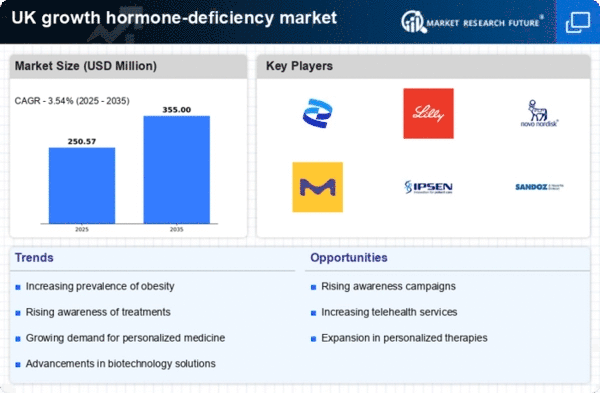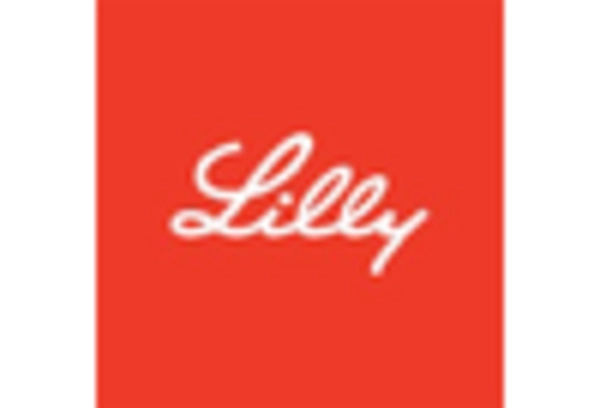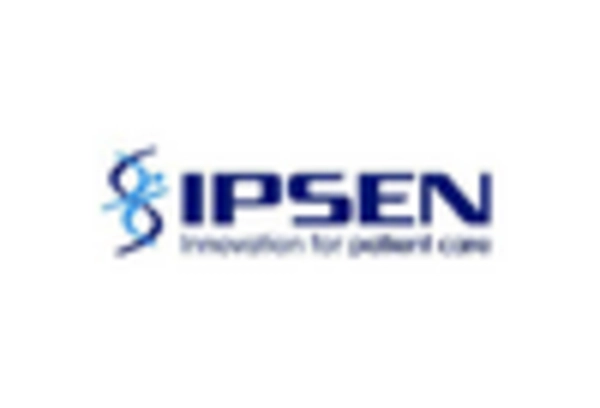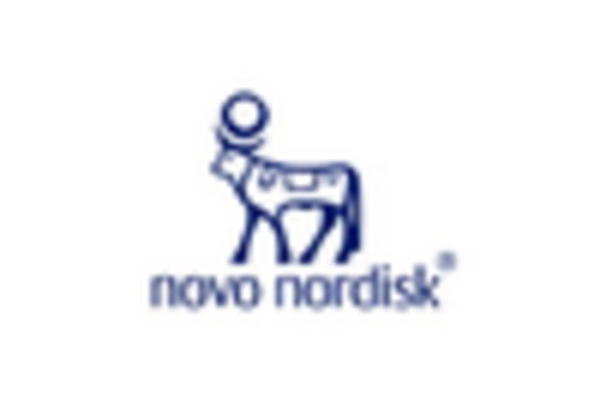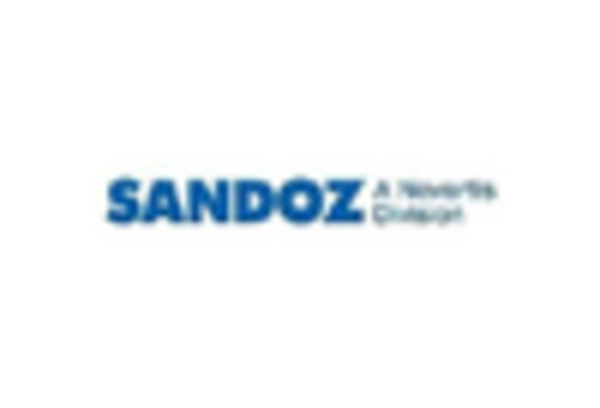Advancements in Biotechnology
The growth hormone-deficiency market is significantly influenced by advancements in biotechnology, which have led to the development of more effective and safer growth hormone therapies. Innovations such as recombinant DNA technology have enabled the production of synthetic growth hormones that closely mimic natural hormones, enhancing treatment efficacy. The market is projected to grow as these biotechnological advancements continue to evolve, with estimates suggesting a compound annual growth rate (CAGR) of around 6% over the next five years. Additionally, the introduction of biosimilars is expected to increase competition, potentially lowering treatment costs and improving accessibility for patients. The growth hormone-deficiency market is thus benefiting from these technological breakthroughs, which are likely to reshape treatment paradigms.
Government Initiatives and Funding
Government initiatives and funding play a crucial role in shaping the growth hormone-deficiency market. In the UK, various health authorities are increasingly recognizing the importance of addressing growth hormone deficiencies, leading to enhanced funding for research and treatment programs. For instance, the National Health Service (NHS) has implemented guidelines to improve diagnosis and management of growth hormone deficiencies, which may lead to increased patient referrals and treatment uptake. This proactive approach is expected to bolster the growth hormone-deficiency market, as more patients gain access to necessary therapies. Furthermore, public health campaigns aimed at raising awareness about growth disorders are likely to contribute to earlier diagnoses, further driving market growth.
Rising Demand for Pediatric Treatments
The growth hormone-deficiency market is witnessing a rising demand for pediatric treatments, driven by an increasing number of children diagnosed with growth disorders. As parents and healthcare providers become more aware of the long-term implications of untreated growth hormone deficiency, there is a growing emphasis on early intervention. The market for pediatric growth hormone therapies is projected to expand, with estimates indicating a potential increase in market size by 15% over the next few years. This trend is further supported by the development of age-appropriate formulations and delivery methods, which enhance adherence to treatment regimens. The growth hormone-deficiency market is thus adapting to meet the specific needs of younger patients, ensuring better health outcomes.
Emerging Trends in Personalized Treatment
The growth hormone-deficiency market is increasingly influenced by emerging trends in personalized treatment approaches. Tailoring therapies to individual patient profiles, including genetic and metabolic factors, is becoming more prevalent. This shift towards personalized medicine is expected to enhance treatment efficacy and patient satisfaction, potentially leading to improved adherence rates. The market is likely to see a rise in the development of customized growth hormone therapies, which may cater to specific patient needs. As healthcare providers adopt these personalized strategies, the growth hormone-deficiency market is expected to evolve, reflecting a more patient-centric approach to treatment.
Increasing Prevalence of Growth Hormone Deficiency
The growth hormone-deficiency market is experiencing a notable increase in prevalence rates across the UK. Recent studies indicate that approximately 1 in 4,000 children are diagnosed with growth hormone deficiency, leading to a growing patient population requiring treatment. This rise in cases is attributed to improved diagnostic techniques and heightened awareness among healthcare professionals. As a result, the demand for growth hormone therapies is expected to surge, driving market growth. Furthermore, the increasing incidence of adult-onset growth hormone deficiency, often linked to obesity and metabolic disorders, adds another layer of complexity to the market dynamics. The growth hormone-deficiency market is thus poised for expansion as healthcare systems adapt to meet the needs of this growing demographic.


